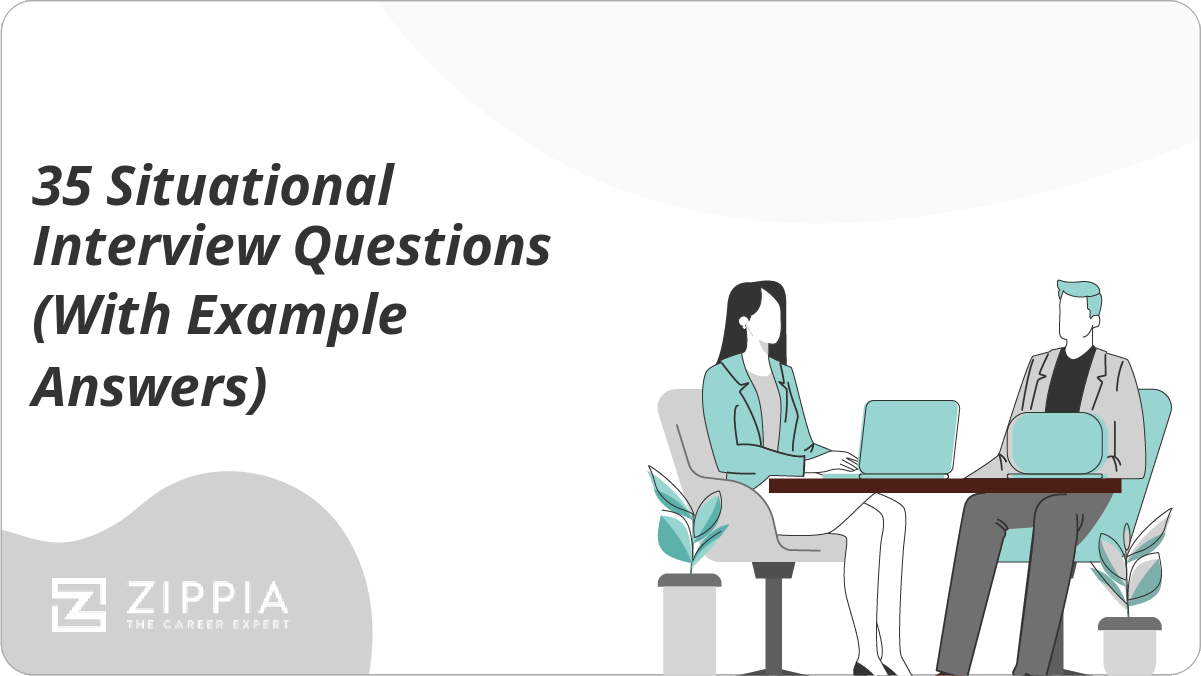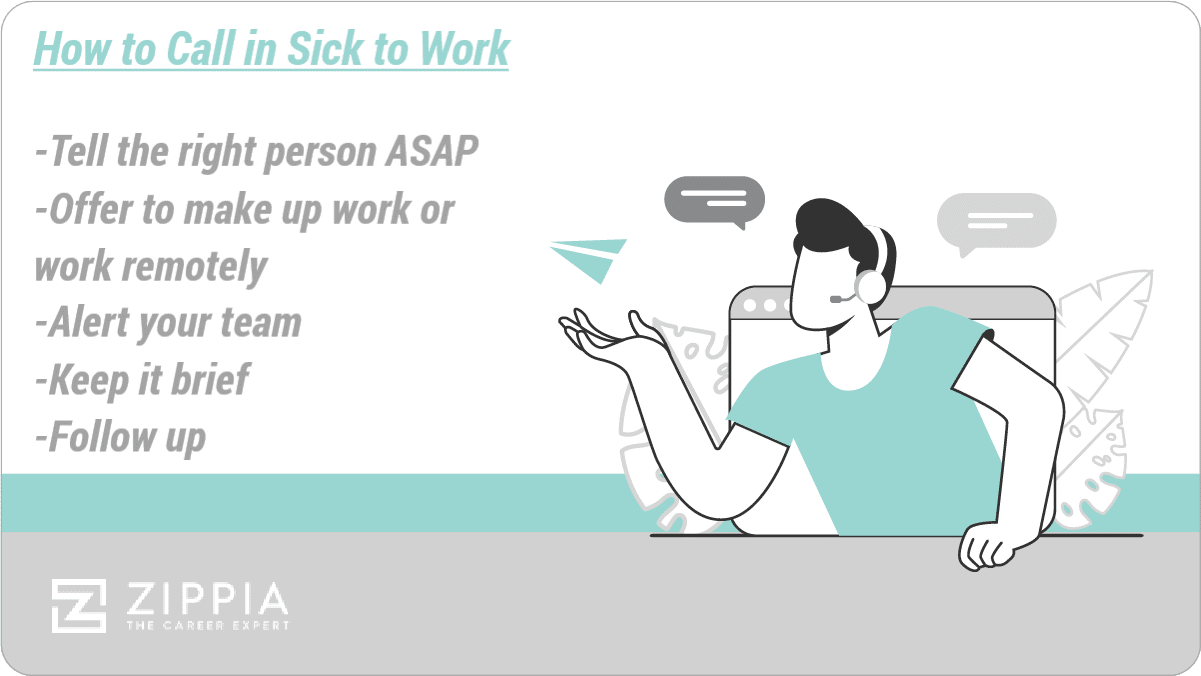- Mentoring
- What Is A Mentor
- Mentor Traits
- Talent Management
- Performance Improvement Plan
- Performance Review Phrases
- Four Functions Of Management
- Difference Between Goals And Objectives
- How To Give Employees Feedback
- What Is An Operational Environment
- Key Success Factors
- How To Not Get Fired
- How To Be More Confident At Work
- One-On-One Meeting
- Performance Management
- Professional Development
- The Peter Principle
- Positive Feedback
- Low Hanging Fruit
- Upskill Your Employees
- Motivation Letter
- Personal Goals
- Networking
- Quotes
Find a Job You Really Want In
Whether you’ve just received a particularly poor performance review or recently gotten on your boss’s bad side, you may see warning signs that you’re about to be fired. Don’t panic.
This article will cover common reasons people get fired, alert you to red flags regarding your job security, and teach you tactics to avoid getting the ax.
Key Takeaways:
-
If you are worried you may be fired, talk with your supervisor and show that you are trying to improve your work.
-
Maintaining a positive attitude and a good relationship with your supervisor and coworker can help you from getting into a conflict and possibly fired.
-
Changing your personal and career goals could help prevent you from getting fired.

How to Protect Your Job When in Danger of Being Fired
If you are afraid you might get fired – don’t panic yet. There’s no time like the present to start making changes.
While some things are ultimately out of your hands, there are a few things you can do to hold onto your job:
-
Talk to your supervisor. Communication is critical in all aspects of business, especially here. If you already got a bad performance review or are on a performance improvement plan, then you have a foundation for what’s expected of you moving forward.
If you don’t have that, then schedule a meeting with your supervisor and find out what you’re doing wrong (and right). Ask for specifics and schedule a follow-up meeting then and there.
If you show that you’re proactively trying to improve and follow your boss’s guidelines (even if you disagree with them), you’ll be much harder to let go.
-
Align your priorities with your employer’s. Now that you’ve had a conversation with your supervisor, you know your priorities. Before spending time on anything, ask yourself: is this the best use of my time, given the guidelines my supervisor laid out for me?
-
Work hard. Pretty obvious, right? Even if you’re known as a slacker, you can redefine your image through consistent hard work. Get rid of distractions and commit yourself to achieving better, more consistent results.
-
Create a performance improvement plan. We know this is one of those “signs you’re about to get fired” we mentioned above, so why should you go out of your way to make a performance improvement plan?
Well, if you know you’re not viewed in the best light to begin with, then actively seeking remedial measures at least shows you care about keeping the job.
-
Maintain a positive attitude. It’s easy to become frustrated when you start seeing the warning signs. Why not just give up, coast along as long as you can, and accept the inevitable termination that’s coming? Well, if you care about your professional reputation and growing as an individual, that’s not exactly the healthiest route to take.
Instead, put on a smile, help your coworkers, and anticipate your boss’s wishes. This isn’t just to save your job – it’s to make you a better employee in the long haul.
-
Be accountable. It’s easy to become defensive when people start questioning your professional abilities. Resist the urge to lash out or throw other people under the bus.
Being bad at your job is one thing, but also being a pain in the ass about it is quite another. If you make a mistake, take responsibility for it, fix it, figure out how to avoid repeating it, and move on.
-
Switch jobs internally. If your department or team’s prospects are looking bleak, or you and your supervisor just don’t get along, think about landing a position elsewhere in the company. It’s a much easier transition than finding a new employer, and it might be just what you need to reinvigorate your passion for the job.
This is a sneaky tip: check out which teams/departments are growing (and have been, consistently). If you move into one of those, you’re likely safer from termination.
-
Advocate for yourself. Nobody else is going to do it. The problem might not be your performance at all, but rather how you’re perceived. There are ways to discuss your strengths and achievements without being annoying.
Always aim to take initiative and stay visible, even if you’re an introvert. If you’re making improvements, be proud, and discuss them with your supervisor as regularly as they wish.
-
Improve your skills. Set personal and professional goals for yourself (and meet them). If you’re continually updating and enhancing your skill set (in ways relevant to the position), then you’ll be that much more irreplaceable.
Just be sure to communicate these goals/milestones with your supervisor, so they can see how hard you’re working to add value to the company.
-
Get laid off instead of fired. Sometimes, saving your job just isn’t in the cards. But you can mitigate the worst of it by asking to be laid off instead of fired.
Being laid off looks better professionally (because, by definition, it wasn’t strictly your fault), and you’ll likely be eligible for unemployment benefits. Your employer might be happy to oblige since it prevents a potential wrongful termination lawsuit.
10 Common Reasons People Get Fired
Employers don’t like to fire people. They invest a lot of time and resources into onboarding new hires, and firing people just admits that the employee was a bad investment. But some aspects of worker behavior are non-negotiable for employers.
Here’s a (by no means exhaustive) list of reasons that people get fired:
-
Consistent tardiness or unexcused absences. You should always turn up to work when your employer expects you to. Continually showing up late or missing work without following protocol is a surefire way to get terminated from your position.
-
Drug or alcohol possession. Kind of a no-brainer here: don’t bring illicit substances to work and don’t show up to work intoxicated.
-
Damaging company property. Okay, you can accidentally break a stapler, and you’re probably fine, but if you’re downloading movies and riddling your company computer with viruses, that’s a big no-no.
-
Using company property for personal reasons. Again, no big deal if you’re sending a couple of personal emails on your work computer. But if you’re on Facebook half the day or using your office’s copier to get your side gig going, your employer won’t take it very well.
-
Bad social media practice. Back in the day, people complained about their boss’s all the time – in person, with no record of the badmouthing.
We advise you to do your bitching the old fashioned way, rather than post it online, where it serves as a permanent record of your grievances.
-
Falsifying documents. Sometimes you make a mistake on a report, but that in itself isn’t a fireable offense. However, if you knowingly falsify any work-related documents, that’s grounds for termination (and possible legal action).
-
Being insubordinate. You can just say “no” sometimes, but if you always follow Nancy Reagan’s advice 100% of the time at work, you’re a horrible employee.
If you have a problem with the way things are being done and the tasks you’re being assigned, express that through the proper channels. In the meantime, do what you’re told.
-
Poor performance. Companies want competent employees that can handle all the duties listed in the job description. If you constantly require oversight or re-dos on your assignments, and they’re still not up to snuff, the company will see you as a bad investment they can’t wait to be done with.
-
Unethical behavior. Stealing, lying, fraud, bullying, and sexual harassment all fall into this category. You’d be amazed how many employees try to get away with padding their income by exaggerating expense reports – this is stealing. Basically, don’t be a jerk.
-
Breaking company policy. Whether it’s failing to follow protocol for taking time off or dating within the office when it’s expressly forbidden, your company has guidelines for a reason.
You can certainly ask human resources when you’re unsure about a policy, but don’t continually break it and assume “no harm, no foul.”
Avoid these big-time no-no’s, and your job will be a whole lot more secure.
Warning Signs You May Be Fired
Getting fired is rarely unpredictable – if you know what to look for. Although you’ll sometimes have very little time to respond to certain situations, it’s essential to know what red flags to watch out for.
If any of the following things start happening, be ready to make adjustments to protect your job:
-
Bad performance review. This is a flashing neon sign that you’re in danger of being fired. It’s especially bad if this review isn’t part of a regularly-scheduled, department/company-wide performance assessment. It’s also extra-bad if this isn’t your first poor performance review.
In some cases, you might be put on a performance improvement plan (PIP). While this could be an opportunity to prove your value, it’s also a big red flag that your job is in danger.
-
You’re left out of projects. Think of it as the cold shoulder of the business world. If your workload starts becoming suspiciously light, people don’t come to you for input anymore, subordinates start going over your head, or superiors start going directly to your team, start worrying.
On the flip-side, if your boss starts altering your responsibilities, it could just be a sign you’re changing positions soon instead of being terminated.
-
Your relationship with your boss has soured. There may be a notable event, like a joke that didn’t go over well or a “he said, she said” scenario with a poorly performed project that tells you your boss doesn’t like you as much anymore.
Or it could just be a general tense feeling and deteriorating communication. Whatever it is, be mindful of your relationship with your boss. You don’t have to be best buddies, but keep in contact and nip any conflicts in the bud ASAP.
-
Increased or decreased oversight. If your boss starts micromanaging everything you do (and that’s out of character for them), that could point to some behind-the-scenes talks about your poor performance lately.
Additionally, your boss may stop caring about what you do altogether. It might be nice at first, but the chances are that they don’t care what you do because you’ll be gone soon anyway.
-
More gets put in writing than it used to. This is a big one: companies will always try to protect themselves from wrongful termination lawsuits by clearly documenting all interactions with you. Written warnings about your performance are especially damning evidence of your imminent termination.
If you start seeing loads of people cc’d on messages (especially HR personnel), that could be a significant sign that your company is getting ready to terminate you.
-
A general shift in work relationships. Ultimately, you have to read the room to sense signs of your imminent termination. While higher-ups will try to keep personnel decisions quiet, people inevitably gossip.
If your coworkers (or clients) start acting strange around you, either by being more reserved or avoiding you altogether, that could indicate that others are in-the-know, or at least have grounds for informed speculation.
-
You’re asked to take a leave of absence. This is a giant warning sign. Your boss might want to see how things function without you in the picture. The obvious next step is that they find you aren’t necessary for business to run smoothly.
Additionally, your employer might cut your hours or demote you.
-
A merger is in the works. This one’s not exactly down to you and your performance, but it’s something to look out for all the same. When two companies merge, there will always be some overlap between job positions and duties.
If you don’t feel confident that management views you in a positive light, you might be deemed expendable.
How to Not Get Fired FAQ
-
Why am I always getting fired?
One of the most common reasons some people are always getting fired has to do with personality, frequent absences, and slacking off. If you don’t have a personality that works well with others, or you are always negative, you may not be someone a manager wants on their team. They may look for any reason to fire you.
If you believe your personality is the reason you keep getting fired, take some time to evaluate how you interact with those at your work, and speak with your boss. Your boss may give you ideas of how to work better with those around you.
-
Is it normal to get fired?
Almost everyone gets fired at some point in their life. This could come in the form of getting laid off, company closing down, or just flat out getting fired.
If you get fired, take some time to decompress from your job and grieve the loss of your job. Once you are done with that, get back out there and find another job you love just as much.
-
Is it better to quit or get fired?
Quitting is usually better for your reputation. You want the decision to look like it was yours to leave a position and not the other way around. If you were fired, a potential employer might see that as a reason not to hire you. If you quit a job, you are able to explain why you left the previous role.
Final Thoughts
Nobody wants to get fired. Keep these common reasons for termination in mind, and watch out for the red flags we discussed. That way, you can remain vigilant and respond proactively when things start going downhill.
Remember, you can take steps to prevent being fired as long as you handle the situation swiftly and professionally. Follow our advice, and you can avoid getting the ax.
- Mentoring
- What Is A Mentor
- Mentor Traits
- Talent Management
- Performance Improvement Plan
- Performance Review Phrases
- Four Functions Of Management
- Difference Between Goals And Objectives
- How To Give Employees Feedback
- What Is An Operational Environment
- Key Success Factors
- How To Not Get Fired
- How To Be More Confident At Work
- One-On-One Meeting
- Performance Management
- Professional Development
- The Peter Principle
- Positive Feedback
- Low Hanging Fruit
- Upskill Your Employees
- Motivation Letter
- Personal Goals
- Networking
- Quotes





